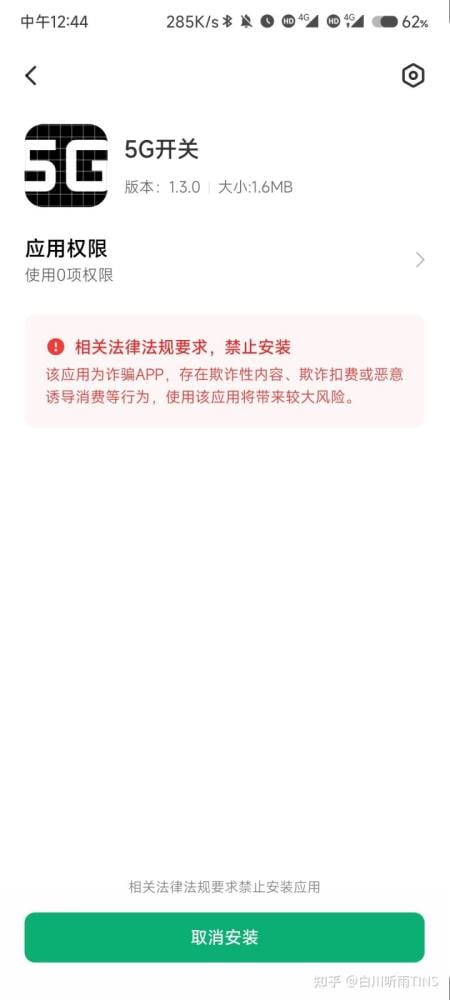
Xiaomi’s MIUI 13 blocks some app installations in China, say users worried about surveillance
- Users in mainland China say they are unable to install certain apps after upgrading to Xiaomi’s latest firmware
- A Xiaomi spokesman said the company’s anti-fraud feature is designed to flag spam calls
Xiaomi smartphone users in China have raised concerns that the Chinese gadget maker is preventing some mobile apps from being installed on their handsets, prompting questions over a new feature introduced in its latest operating system (OS).
Discussions about Xiaomi’s anti-fraud function started trending on Chinese social media after Xiaomi launched its MIUI 13 software last Tuesday. The update is currently available for the company’s recent flagship products, including the Mi 11 and Mi 11 Pro, while older devices will receive the update in three batches, with the last one slated for May.
How Xiaomi rose to become China’s No 1 smartphone maker
Some apps that are banned in mainland China, such as YouTube and ExpressVPN, remain unaffected, said the user, who requested anonymity for fear of government retribution for using these apps.
“I am worried that my phone will become a monitor,” he said. “I am considering replacing the firmware with the overseas version.”

Users attributed the blockage to Xiaomi’s “system-level full-link anti-telecoms fraud” function, which is designed to flag suspicious phone calls and text messages, block the installation of fraudulent apps, and prevent users from engaging in risky money transfers, said Jin Fan, Xiaomi’s head of MIUI, during the company’s product event on December 28.
In response to the Post’s request for comment, a Xiaomi spokesman said on Wednesday that “there are some misunderstandings towards a feature called ‘Smart Identification of Unknown Number’”. The feature helps users identify whether an incoming call comes from an advertiser, a delivery person, or a suspected scammer, the spokesman said, adding that the function can be turned off.
Xiaomi said the feature, which is only activated in mainland China, scans calls and text messages using a database built from voluntary reports from users and third-parties. It does not extract user data from smartphones, the spokesman said.
Xiaomi did not respond to questions on whether the feature blocks apps.
Another Xiaomi user of the Mi 11 Ultra told the Post that the MIUI 13 blocked him from installing an app called “BiliRoaming” using an Android application package (APK) file, which allows Android users to install apps directly without resorting to app stores. BiliRoaming lets users circumvent regional restrictions on some anime shows on the popular Chinese video streaming platform Bilibili.
Screen captures of his phone showed a message that read “installation is prohibited by relevant laws and regulations” when he tried to install BiliRoaming with the security check option switched off.
The user, who also requested anonymity because of the sensitivity of the matter, said he worried that the embedded feature can be used to aid government surveillance.

Other Chinese social media users suspected that the function was created in collaboration with the Anti-Fraud Centre under the Chinese Ministry of Public Security.
In March 2021, the agency launched its own anti-fraud app, designed to identify suspicious phone calls based on government-compiled data. The app generated thousands of privacy-related online complaints from people who said they had to download it to rent flats or enrol their children in schools, according to a report from the Financial Times.
A Xiaomi spokesman said the company’s “Smart Identification” function is developed in-house and “designed as a useful tool for consumers and nothing more”. A call made by the Post to the Anti-Fraud Centre hotline on Wednesday went unanswered.
On Baidu Tieba, a popular Chinese discussion board, some MIUI users said they were sticking to older versions of the operating system because of concerns over the anti-fraud feature.
Xiaomi phones send search and browsing data to China, researcher says
On microblogging platform Weibo, user Chenfeng Chenchen called the function “scary”, with many netizens who commented under her post expressing similar sentiments. Some said they would switch to other phone brands if they could not find a way to get rid of the feature.
“[I] would have to ditch Xiaomi, and even if I bought it, I would only buy one with an overseas OS version,” one comment read.
The original Weibo post has received more than 1,800 endorsements and has been reposted more than 100 times.
A Redmi K40 smartphone user, who only wished to be identified by the name David, said he worried that the function would keep him from using apps banned by the government, such as VPNs. “Although privacy no longer exists in today’s online society, actively interfering in my online life makes me feel insecure and uncomfortable.”
Xiaomi had a 13.6 per cent share in China’s smartphone market in the third quarter of 2021, placing it in fourth place behind Vivo, Oppo and Huawei Technologies Co spin-off Honor, according to research firm IDC.
The Beijing-based manufacturer was the world’s third biggest smartphone vendor during the same period, holding a 13 per cent global market share, according to research company Counterpoint.

